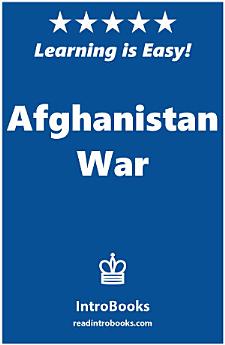Afghanistan War
អំពីសៀវភៅអេឡិចត្រូនិកនេះ
For the Afghanistan government, the war was an existential struggle for survival against the Taliban and other insurgents as well as the long-term efforts for the establishment of sustainable security and great stability. For the US government, the war in Afghanistan was concerned about the security of both Afghanistan and the surrounding regions. The concern also included the denial of the safe heaven to the terrorists and in ensuring the stable and constructive regional security balance. For the regional states which included Russia and India as well as the immediate neighbors of Afghanistan including Pakistan and Iran, the war in Afghanistan is critical as it can have a powerful impact on the future security and the balance of influence and power in the region. For the individual members of the NATO Alliance, the war might be the combination of defeating the terrorist networks, proving themselves as efficient NATO members, ensuring the regional stability and demonstrating the relevance of the Alliance of the security challenges of the 21st century.








